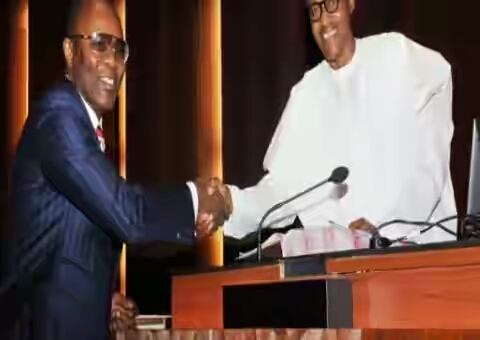Northern politicians were taken by surprise, as the Minister of State for Petroleum, Emmanuel Kachikwu, was reported to have taking advantage of President Muhammadu Buhari’s disappearance, to take over the petroleum industry.

According to news reports, Kachikwu who spoke on Tuesday, January 31, during a stakeholders meeting, organized by the ministry of Niger Delta Affairs, noted that under his watch, Nigeria will produce 3 million barrels of crude oil per day, as he is working round the clock to end militancy in the oil rich Niger Delta region by middle of 2017.
Recall, that President Buhari since assumption of office has been unable to end militancy in the region and has been accused of refusing to visit the region, over threat to his life.
According to Kachikwu, going by the fact that the first month has ended on Tuesday, the government has just five months to achieve its target.
He said Nigeria is capable of producing three million barrels of crude oil per day, but that the insecurity in the region had curtailed the nation’s capacity to realise its oil-production potential.
He said, “It is important we continue to sustain the institutional engagement and negotiations which are key to the development of the region”.
“Our target is zero militancy by the middle of 2017, and an incident reduction in the region by 90 percent by 2018.
“We must resolve current militancy problems and bring back oil production to 2.2 million barrels per day,” Kachikwu said in his first phase of his action plan.
Speaking further, he lamented that over $40 billion had been spent in 12 years and there were no infrastructures on ground to justify the huge expenditure profile in the region.
Kachikwu noted that there was need to create stability incentive schemes, jobs and investment opportunities, so that the government would look at cross border investments to strengthen the region.
He disclosed that the government was introducing a joint account with oil companies to foster transparency in cash calls and ensure that inflows were clearly understood by all.
“We are targeting 30 percent cost savings, which we can link to transparency. What is most important is not the amount of the fund; its the conceptualization of that funding.
“Governors will have to come together as a regional block to look at cross-state investments in roads, railways, town facilities or specialist hospitals. We are going to pool in energy and ensure we look at cross border investments to strengthen the region.”
Concluding, he said, government was also looking at the amnesty programme to absorb some of the trained ex-agitators in the areas of coastal patrol and Niger Delta paramilitary type Organisations.







